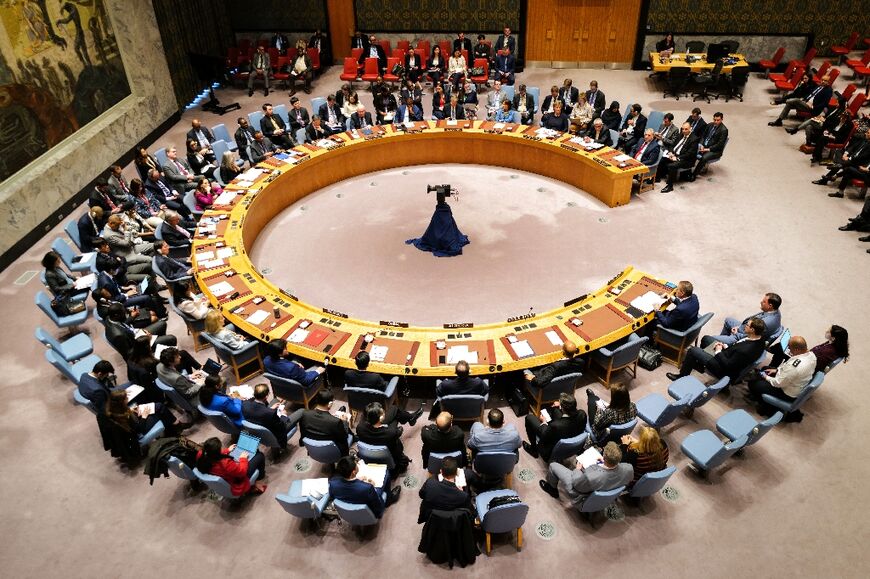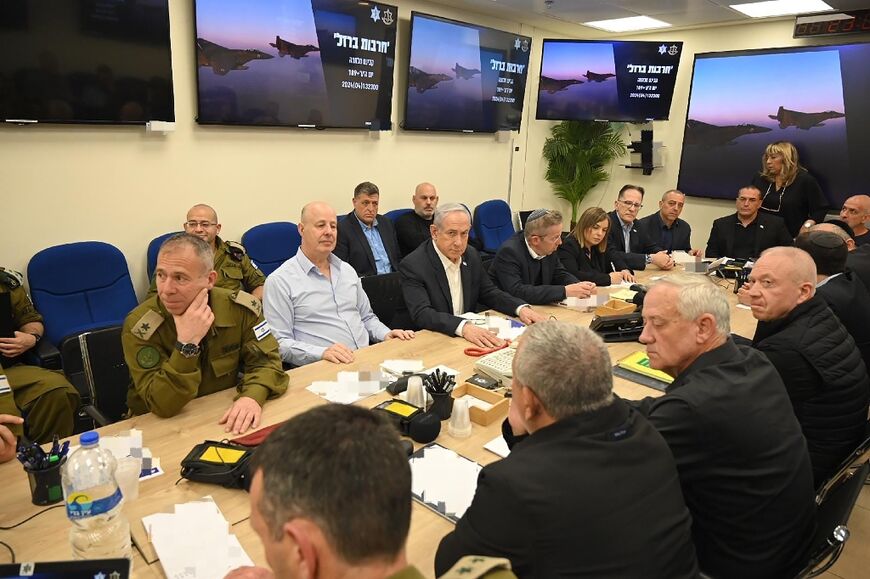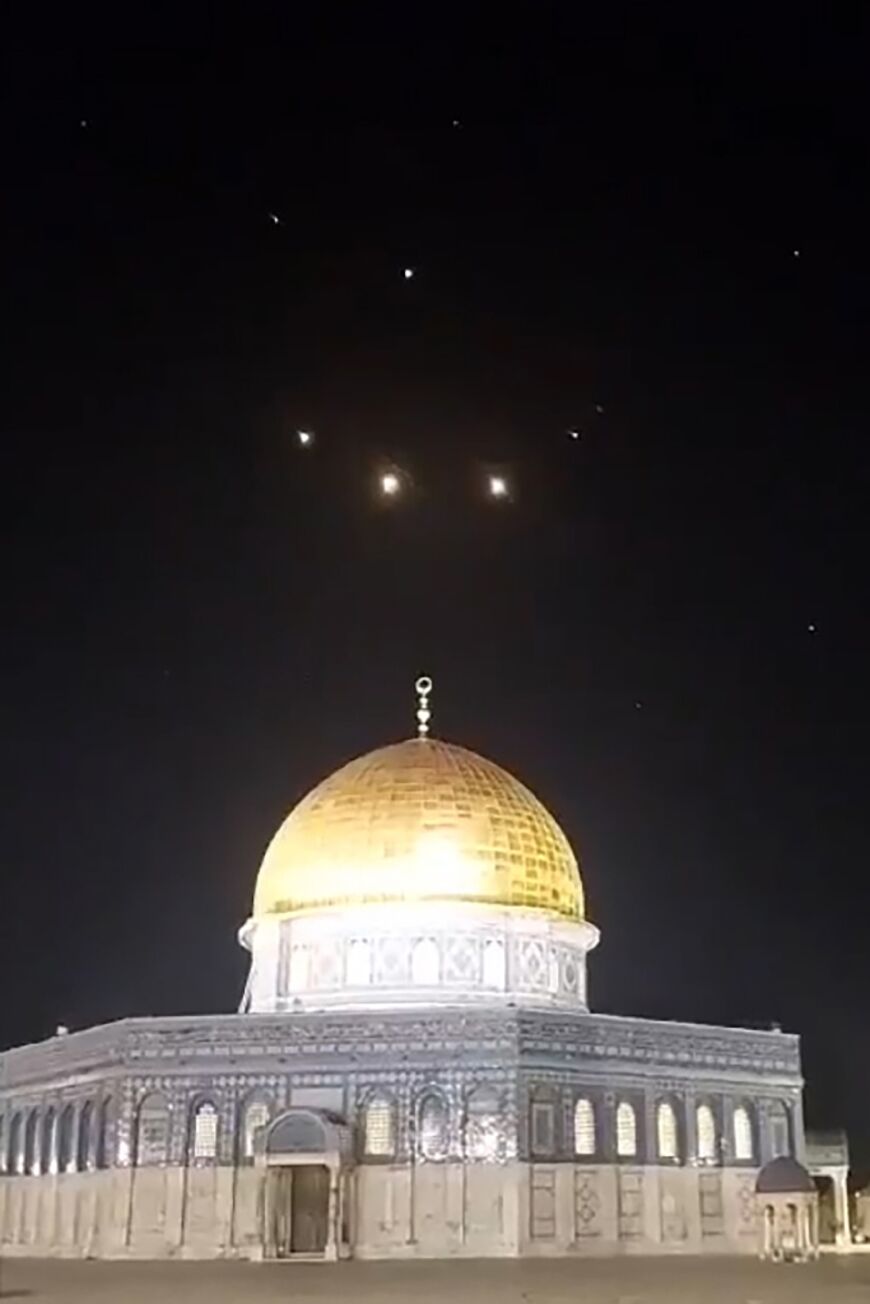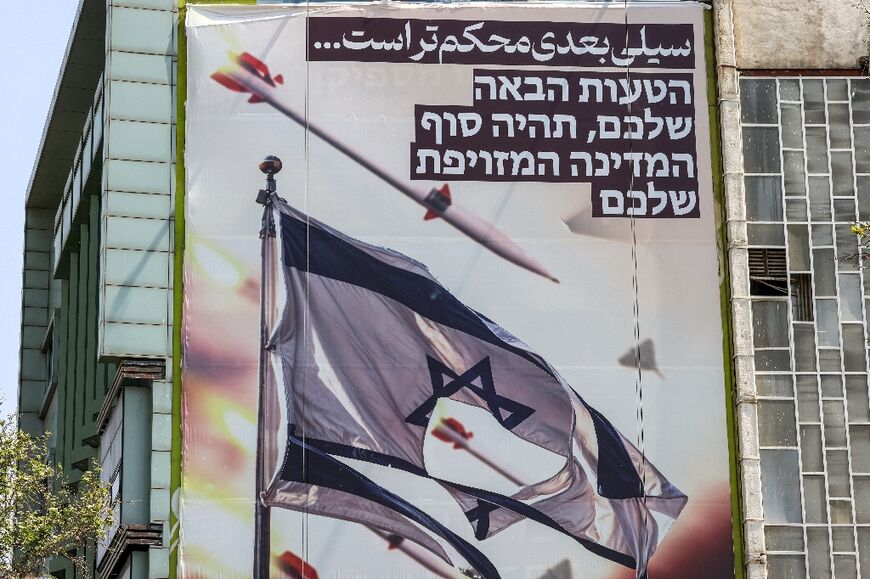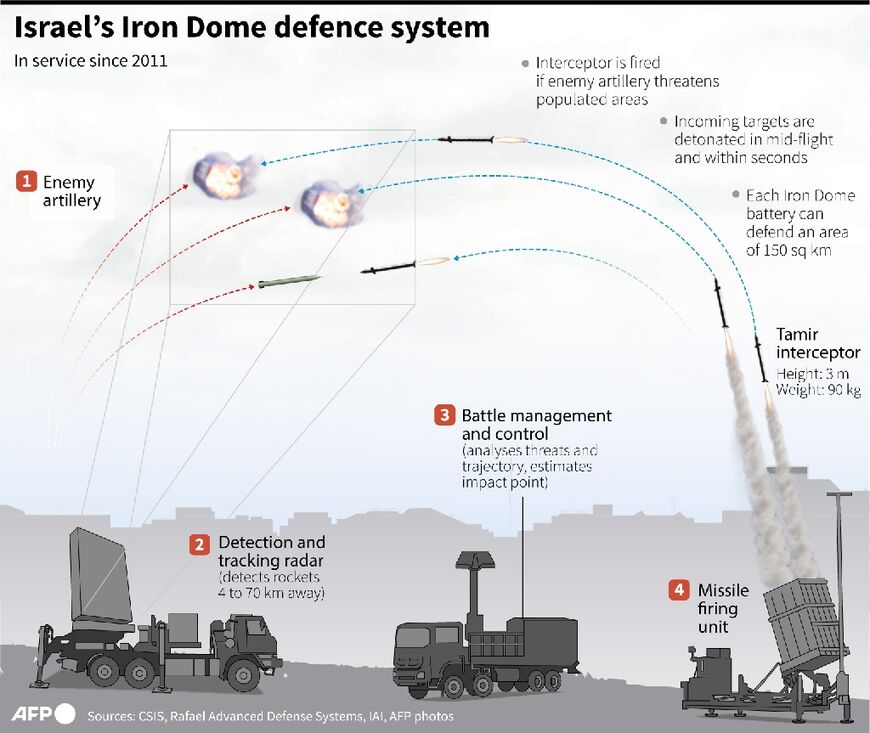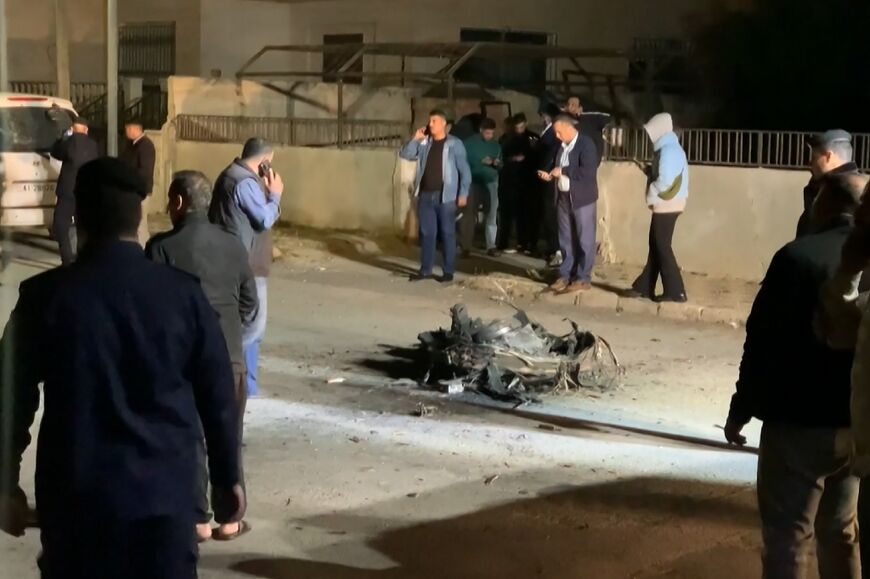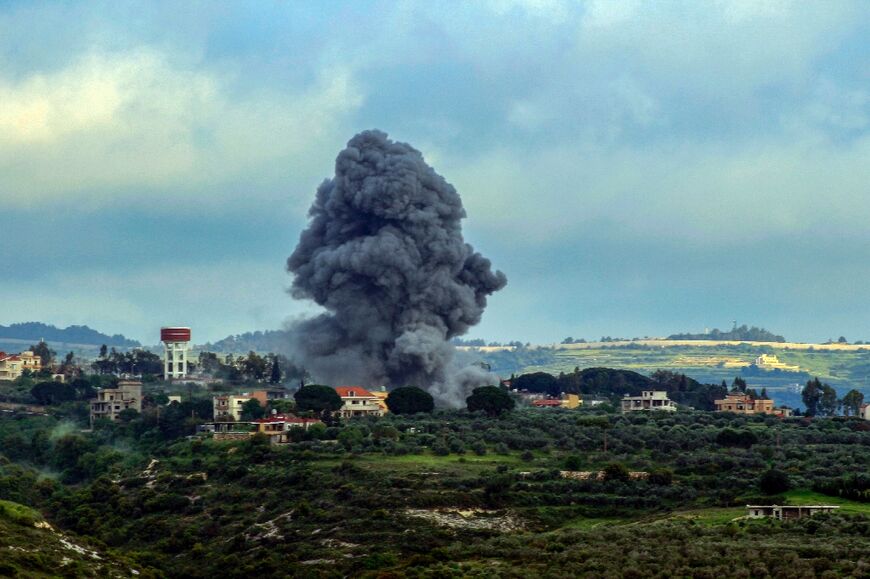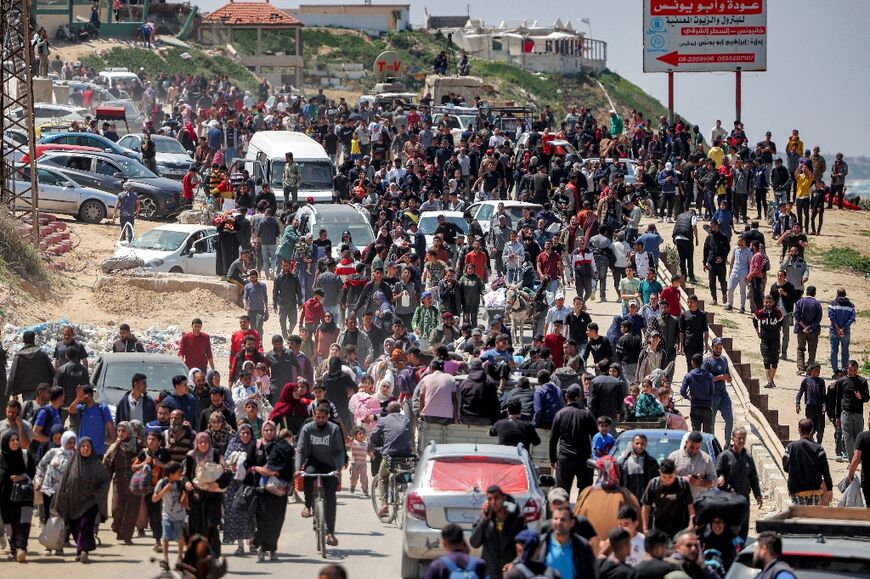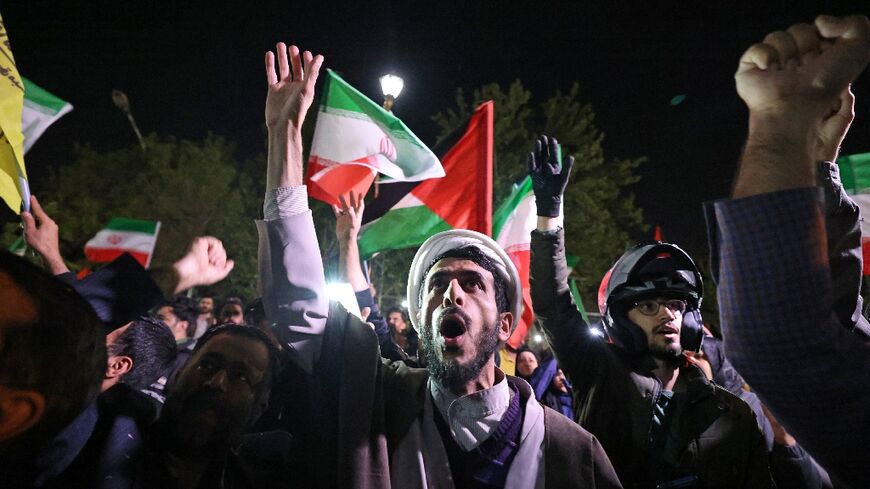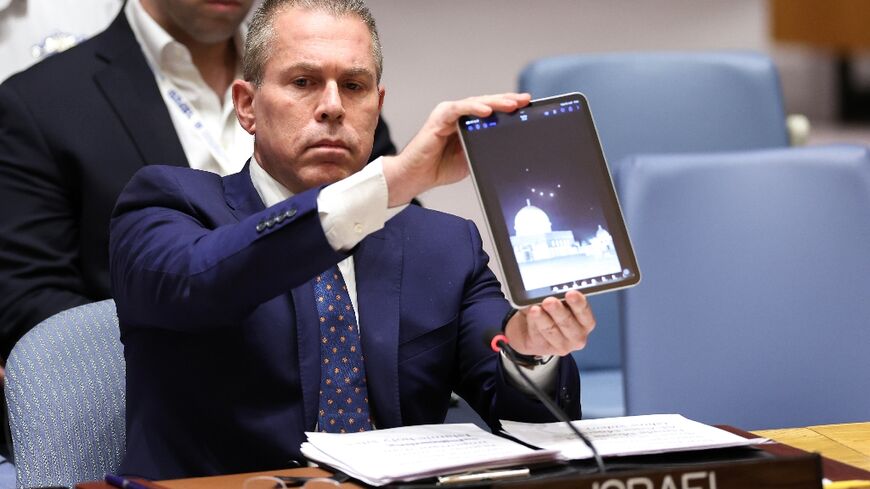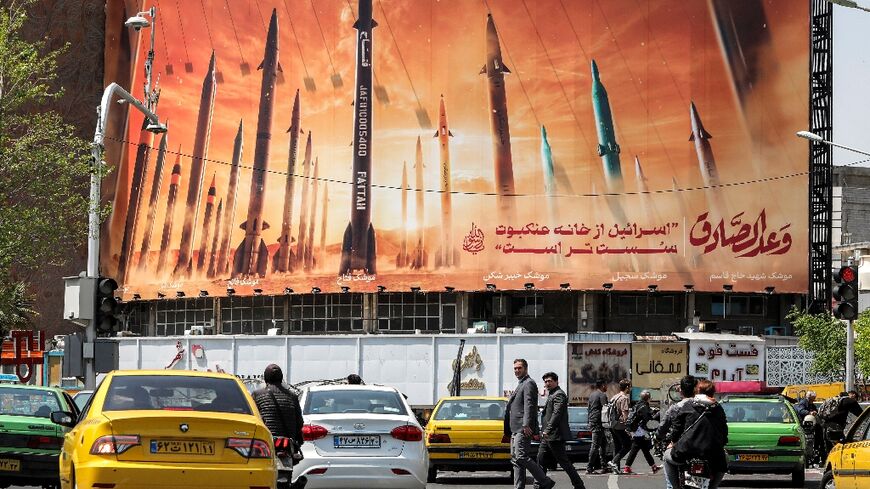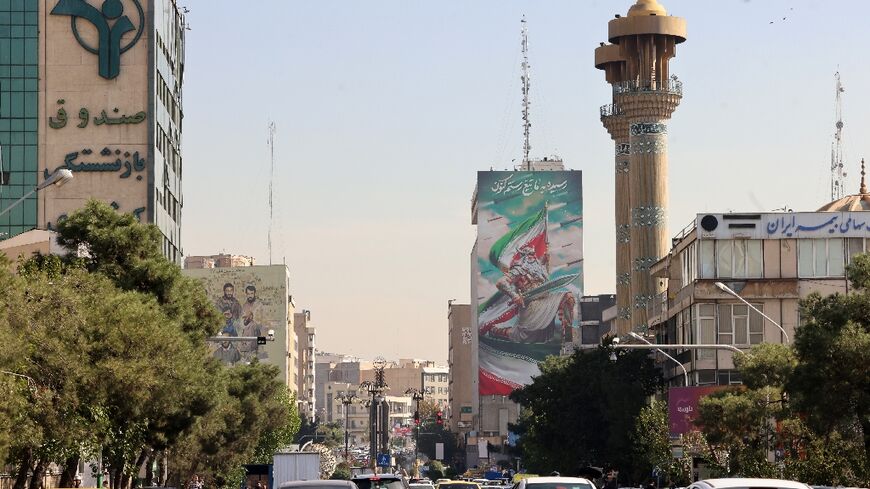Israel urges Iran sanctions as world warns against escalation
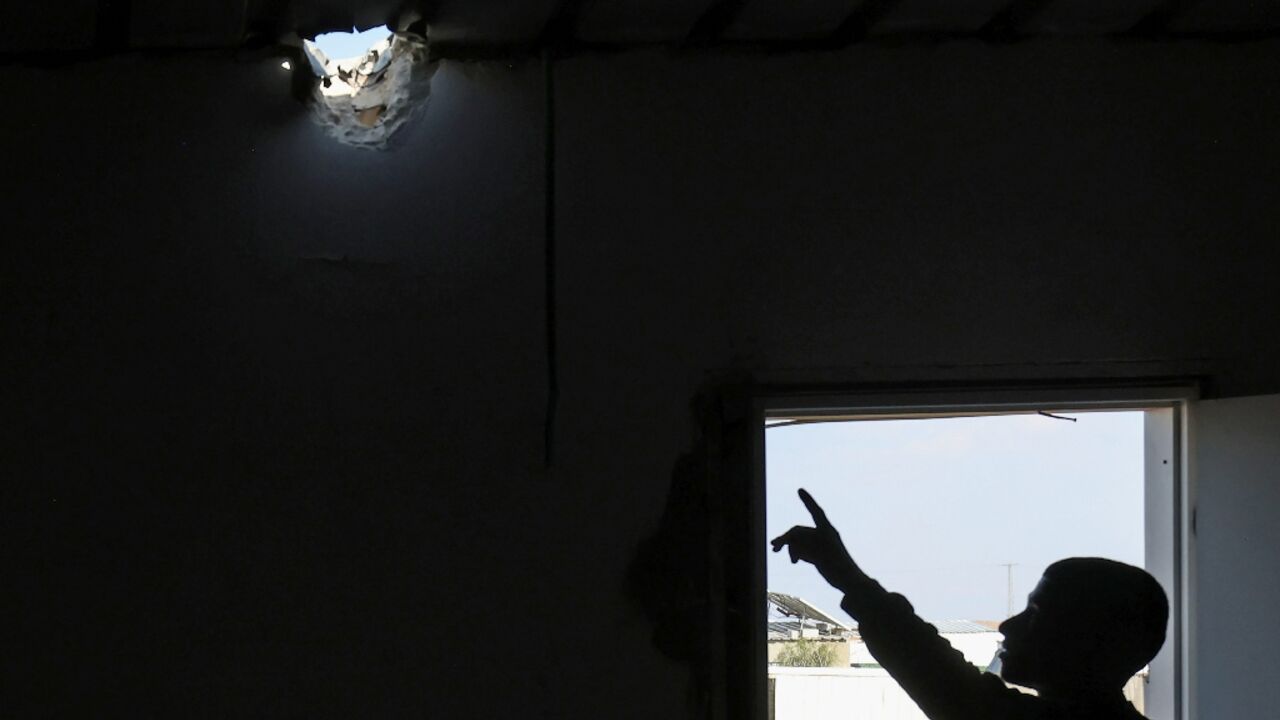
World powers urged restraint on Sunday for fear that Iran's unprecedented missile and drone strikes on Israel could spark a wider war in the Middle East, as the United Nations heard a call for new sanctions against Tehran.
Iran launched the attack, its first ever to directly target Israeli territory, in retaliation for a deadly air strike widely blamed on Israel that destroyed Tehran's consular building in Syria's capital early this month.
The strikes raised Middle East tensions to a dangerous new level six months into a deadly conflict between Israel and the Palestinian militant group Hamas in Gaza, prompting international cries of alarm.
"Neither the region nor the world can afford more war," UN Secretary General Antonio Guterres told the body's Security Council as it met to discuss Saturday's Iranian attack.
"The Middle East is on the brink," he warned. "The people of the region are confronting a real danger of a devastating full-scale conflict. Now is the time to defuse and de-escalate."
Israel's UN envoy, Gilad Erdan, urged the Council to "impose all possible sanctions on Iran before it's too late" and "condemn Iran for their terror".
G7 leaders earlier said they were ready to "take further measures" in response to "destabilising initiatives".
Iran's UN envoy, Amir Saeid Iravani, retorted that the Islamic republic was exercising its "inherent right to self-defence" and "had no choice" but to act. He insisted his country did "not seek escalation or war", but would respond to any "threat or aggression".
- Israel intercepts projectiles -
Through Saturday night, air raid sirens wailed and Israelis sought cover in bunkers and shelters as missile defence systems and warplanes intercepted drones and missiles.
Israel and its allies intercepted the vast majority of the more than 300 incoming projectiles, the Israeli army said, reporting 12 people injured and no deaths, but the attack sharply heightened fears of an Israeli counterstrike.
"Together we thwarted Iran's attack, Israeli military spokesman Rear Admiral Daniel Hagari said in a televised statement.
"This was the first time that such a coalition worked together against the threat of Iran and its proxies in the Middle East."
G7 leaders condemned Iran's attack and called for "restraint" on all sides, European Council President Charles Michel wrote on X after a video conference.
"We will continue all our efforts to work towards de-escalation. Ending the crisis in Gaza as soon as possible, notably through an immediate ceasefire, will make a difference."
Israel's top ally the United States also urged caution and calm.
"We don't want to see this escalate," White House National Security Council spokesman John Kirby told NBC. "We're not looking for a wider war with Iran."
- US warns against retaliation -
A senior US official said President Joe Biden had told Israeli Prime Minister Benjamin Netanyahu that Washington would not offer military support for any retaliation on Iran.
"We would not be a part of any response they do," the official told reporters on a call, speaking on condition of anonymity. "We would not envision ourselves participating in such an act."
Biden reaffirmed the United States' "ironclad" support for Israel, but also appeared to guide it away from a military response against the two countries' common adversary, Iran.
News outlet Axios reported that Biden had told Netanyahu he should "take the win", and that Washington would oppose an Israeli counterattack.
Before Tehran attacked, Israel's military had warned Iran it would suffer the "consequences for choosing to escalate the situation any further".
Netanyahu on Sunday met with his war cabinet, formed at the outset of the Gaza conflict following the bloody October 7 attack on Israel by Hamas.
Iranian President Ebrahim Raisi on Sunday cautioned Israel against a "reckless" retaliation, warning this would spark "a decisive and much stronger response".
- Missiles, attack drones -
Iran's mission to the United Nations also warned Washington to keep out of its conflict with Israel.
It added in a message on X that "the matter can be deemed concluded".
"However, should the Israeli regime make another mistake, Iran's response will be considerably more severe."
Israeli Defence Minister Yoav Gallant said on Sunday that "the campaign is not over yet -– we must remain alert".
Iran said its attack came in response to the April 1 air strike on Tehran's consulate building in Damascus, which killed seven Revolutionary Guards including two generals.
The Israeli military said that while 170 drones and 30 cruise missiles were shot down before reaching Israel, a few of the 110 ballistic missiles did get through.
One of those wounded was a seven-year-old girl near Israel's southern town of Arad who was in intensive care.
Iran's allies, including Lebanon's Hezbollah, joined the attack. Yemen's Iran-backed Huthi rebels also launched drones at Israel, security agency Ambrey said.
Officials said British and other allied jets and Jordanian defences also shot down incoming projectiles, mostly before they reached Israeli airspace.
- 'Satisfying Iran's honour' -
Iran's Foreign Minister Hossein Amir-Abdollahian said Tehran had notified the United States ahead of the attack after giving neighbouring states 72 hours' notice.
Iran had earlier seized an Israeli-linked container vessel in the Gulf, putting the whole region on alert.
Iran's army declared that its attack was "completed successfully", and Syria also said Iran had exercised its "right to self-defence".
Iran's "Operation Honest Promise... achieved all its objectives", armed forces chief of staff Mohammad Bagheri said.
Hundreds of Iranians waved Iranian and Palestinian flags on Sunday in Tehran's Palestine Square.
Analyst Nick Heras of the New Lines Institute for Strategy and Policy told AFP that Saturday's attack was "all about satisfying the honour of Iran".
"This recent escalation in the Middle East is about the treacherous state of US and Iran relations, in which Israel is just one arena of conflict," he said.
- 'Spiral of violence' -
In besieged Gaza, thousands of inhabitants flooded the coastal road north Sunday after hearing that several people managed to cross a closed checkpoint towards Gaza City, despite Israel denying it was open.
The war in Gaza began with Hamas's unprecedented October 7 attack, which resulted in the deaths of 1,170 people, mostly civilians, according to an AFP tally based on Israeli figures.
Israel's retaliatory offensive has killed at least 33,729 people in Gaza, mostly women and children, according to the territory's Hamas-run health ministry.
Late Saturday, Hamas said it had submitted its response to a truce plan presented by US, Qatari and Egyptian mediators at talks that started in Cairo on April 7.
Hamas said it was sticking to its previous demands, insisting on "a permanent ceasefire" and the withdrawal of the Israeli army.
Israel's Mossad spy agency called this a rejection of the proposal, accusing Hamas of "continuing to exploit the tension with Iran" and aiming for "a general escalation in the region".
burs-jd/srm/fz/smw


